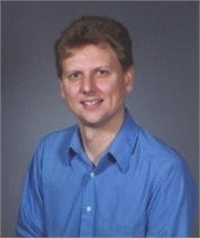Abstract: Atomic clocks realize the most accurate measurements of any physical observable, frequency and time. There are a number of interesting problems in current microwave and optical frequency atomic clocks. I will give an overview of the clocks and discuss several solutions to present limitations. Microwave clocks currently keep the most accurate time. Recent work has advanced the accuracy to 2.3 parts in 10^16, coming from understanding ultracold collisions, Doppler shifts, and a frequency shift due to the momentum of a microwave photon. The next generation of atomic clocks is expected to use optical frequencies to achieve an accuracy of 1 part in 10^18. Here, for optical lattice clocks, novel collisions of fermions and the frequency shifts due to Blackbody radiation will have to be well-controlled to achieve the clock's full accuracy potential.
Biography: Professor Kurt Gibble is in the Department of Physics at Penn State. He obtained a BS in Engineering Physics at Lehigh University and a Ph.D. in Physics from JILA at the University of Colorado. Following a post-doc at Stanford University with Steven Chu, he was on the faculty at Yale University before joining Penn State in 2001. He researches a broad range of topics related to ultracold atomic scattering and atomic clocks, including active collaborations with the national laboratories of France, Germany, and the United Kingdom. He was a recipient of a National Science Foundation National Young Investigator award and is a Fellow of the American Physical Society. He serves as Vice-Chair of the IEEE Frequency Control Standing Committee and was cochair of the Joint Program Committee of the 2009 Joint Meeting of the European Frequency and Time Forum and the IEEE International Frequency Control Symposium.


